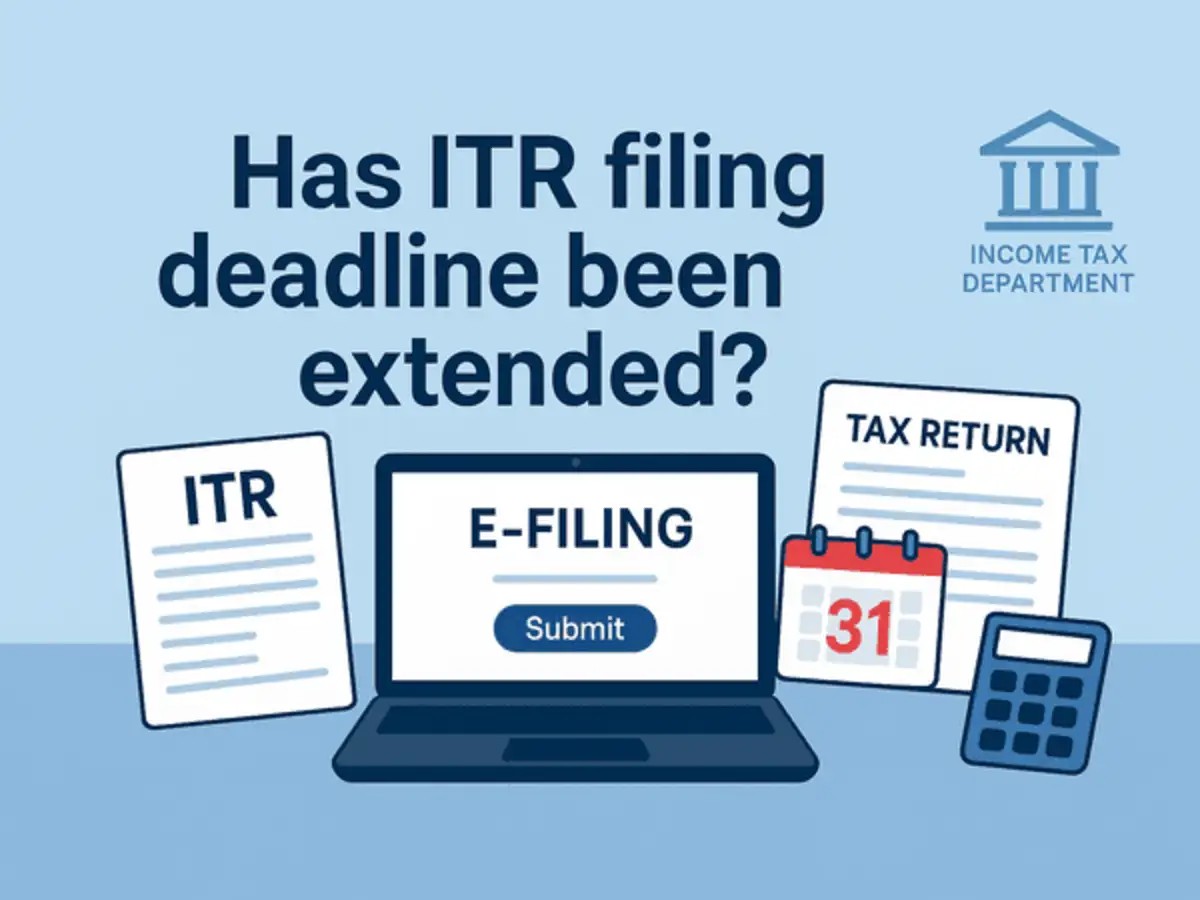ITR filing last date FY 24-25: Has income tax return filing deadline been further extended to September 30, 2025?
By Sneha Kulkarni
Copyright indiatimes

With the last date of filing the Income Tax Return (ITR) today, i.e., September 15, 2025, and a lot of taxpayers still rushing to file their ITR, many people are still eager to know whether the ITR filing deadline has been extended or not?Income Tax GuideIncome Tax Slabs FY 2025-26Income Tax Calculator 2025New Income Tax Bill 2025A notice circulating online on Sunday added more confusion to it, as it was referring to a press release from the Ministry of Finance, saying that the ITR filing deadline has been extended to September 30, 2025.But the Income Tax Department denied any such development, saying the message in circulation is fake, and the ITR deadline remains the same, i.e. September 15. “A fake news is in circulation stating that the due of filing ITRs (originally due on 31.07.2025, and extended to 15.09.2025) has been further extended to 30.09.2025. The due date for filing ITRs remains 15.09.2025. Taxpayers are advised to rely only on official @IncomeTaxIndia updates. To assist taxpayers for ITR filing, tax payment and other related services, our helpdesk is functioning on a 24×7 basis, and we are providing support through calls, live chats, WebEx sessions & Twitter/X.”Also read | ITR Filing 2025 Last Date Live UpdatesITR can still be filed after September 15, 2025 with payment of late fee and losing some benefitsIf we look at the taxpayer data given on the official website of the Income Tax Department, as on September 15, 2025, 8:30 am (Data as on September 13, 2025), out of 13.43 crore registered taxpayers, as many as 6.30 crore taxpayers have filed their ITRs. The I-T Department has verified 5.80 crore ITRs, while it has processed 3.89 crore of them.Even though a large number of ITRs have been filed, many from the chartered accountant (CA) community have been requesting the Finance Minister to extend the September 15 ITR filing deadline.CA Ashish Niraj, partner, ASN & Company, says: “We were facing issues with downloading the AIS during peak office hours, so we had to wake up at 2AM and work till 7AM to download the AIS of our clients and file the Income Tax Return (ITR). Some of our clients were also facing issues with tax payment also. However, since the ITR filing deadline is not yet extended, we would suggest taxpayers file their ITR. This is because the AIS is a suggestive tool and not a mandatory requirement to file ITR solely based on this. For example, taxpayers can get information about their capital gains income from their stock broker’s app, KFintech or CAMS for mutual funds. For bank interest, they can easily get this from the statement. So putting hope on a deadline extension is not recommended. Once the deadline is over, the only option is to pay the late fee up to Rs 5,000 and file a belated ITR.”Also read: Husband bought property for Rs 60 lakh jointly with wife; Income tax dept sent her notice for unexplained investments; she wins case in ITAT Delhi What will happen if you fail to file ITR by the September 15, 2025 deadline?If you fail to file your ITR on or before the September 15, 2025 deadline, you need to pay a late fine of up to Rs 5,000. Belated ITR filing deadlineIf you fail to file ITR by September 15, 2025, you have until December 31, 2025, to file a belated ITR for the fiscal year 2024–2025 by paying a Rs 5,000 penalty. However, if you also miss the belated ITR deadline, you may face legal issues, including prosecution.Also read: Even if you made zero capital gains income from sale of property you still need to pay tax in this situation; CA explains why ITR late filing feeAccording to a Press Information Bureau (PIB) release, “A late filing fee is levied if the return is furnished after the specified due date. A fee of Rs 5,000 is payable for returns filed after the due date. However, in cases where the total income does not exceed Rs 5 lakh, the late fee is restricted to Rs 1,000. In addition, a delay in filing attracts 1% interest per month on the pending tax amount, in addition to the late filing fee.” What is ITR and who should file?An ITR (Income Tax Return) is a form to declare your income and taxes. You should file if:Your income is above the basic exemption limit.You want to claim refunds (for the excess TDS deducted).You need proof of income for bank loans, visa applications, or financial transactions. What are the consequences of not filing ITR on time?Chartered Accountant Abhishek Soni, co-founder, Tax2Win, says that missing the original ITR deadline can lead to several consequences:Late filing fee: Under Section 234F, a late fee of up to Rs 5,000 may be levied for belated ITRs (ITR filed after the original deadline). If the income is less than Rs 5 lakh, the penalty is Rs 1,000, and if the income exceeds Rs 5 lakh, the penalty is Rs 5,000.Interest on tax due: Interest under Sections 234A (for late filing), 234B (for shortfall in advance tax), and 234C (for the deferment of advance tax) may apply.Loss of carry forward benefits: Only unabsorbed depreciation and house property loss can still be carried forward even if ITR is filed late.Delayed refunds: Filing ITR after the due date may result in the delayed processing of refunds.Increased scrutiny: Late ITR filings may attract closer scrutiny from the Income Tax Department. Can individual salaried and self-employed taxpayers with no business income change their tax regime while filing a revised ITR?Revised ITR can be filed only if you have filed an original ITR on or before the deadline i.e., September 15, 2025, for FY 2024-25 (AY 2025-26).CA Hitesh Jain, Partner – Direct Tax, N. A. Shah Associates LLP, explains that as per Section 115BAC, as applicable from AY 2024-25 onwards, the new tax regime is the default tax regime. So if a taxpayer wants to opt for the old regime, then ITR needs to be filed before the due date prescribed under Section 139(1) which is September 15, 2025 for FY 2024-25 (AY 2025-26).Jain says: “Hence, if the original ITR is filed before the due date prescribed under Section 139(1), then taxpayers can revise the ITR by switching from the new regime to the old regime. Accordingly, salaried taxpayers (who do not have income from business or profession) can switch between the new and old tax regimes while filing a revised return, provided the revised return is filed within the prescribed time limit.”



